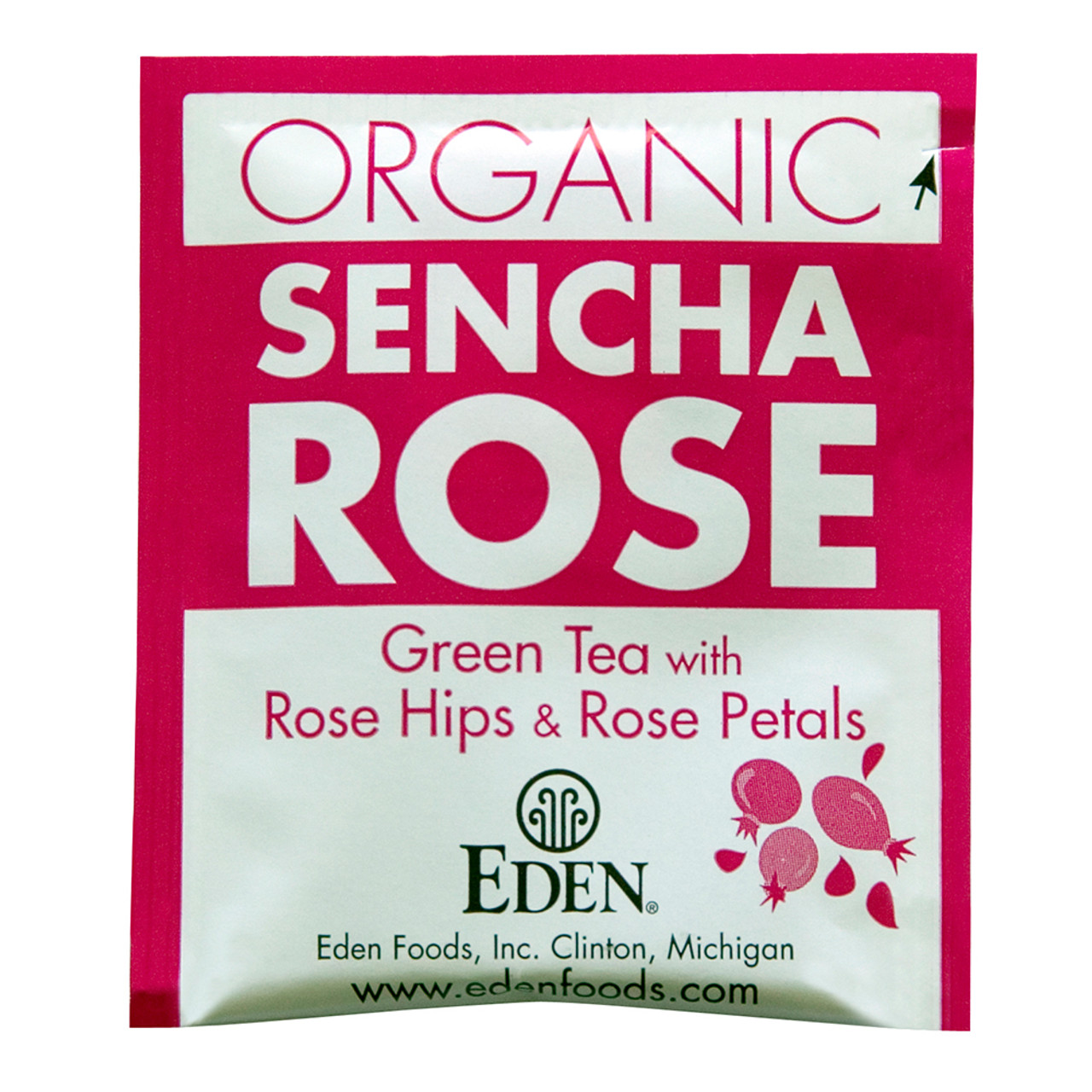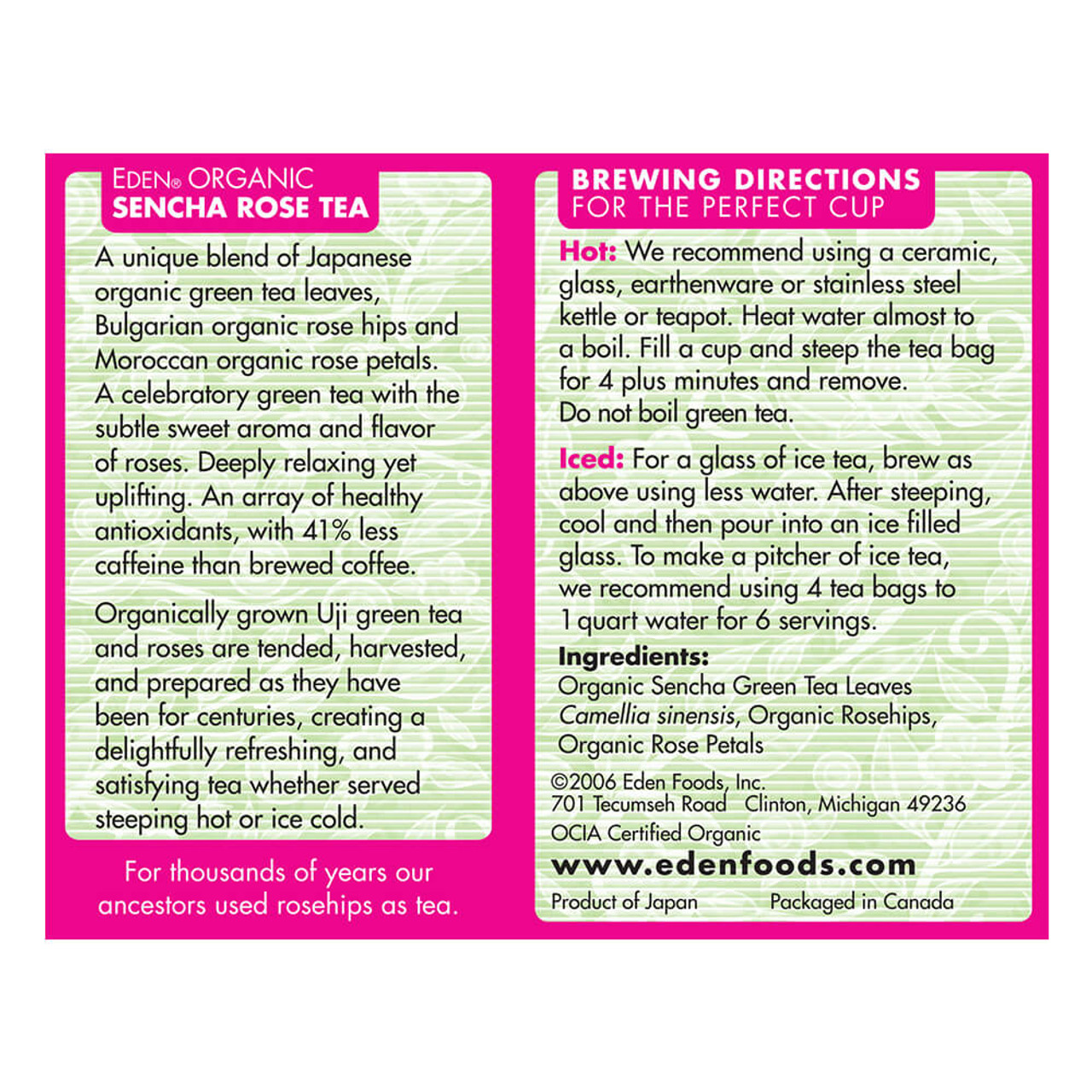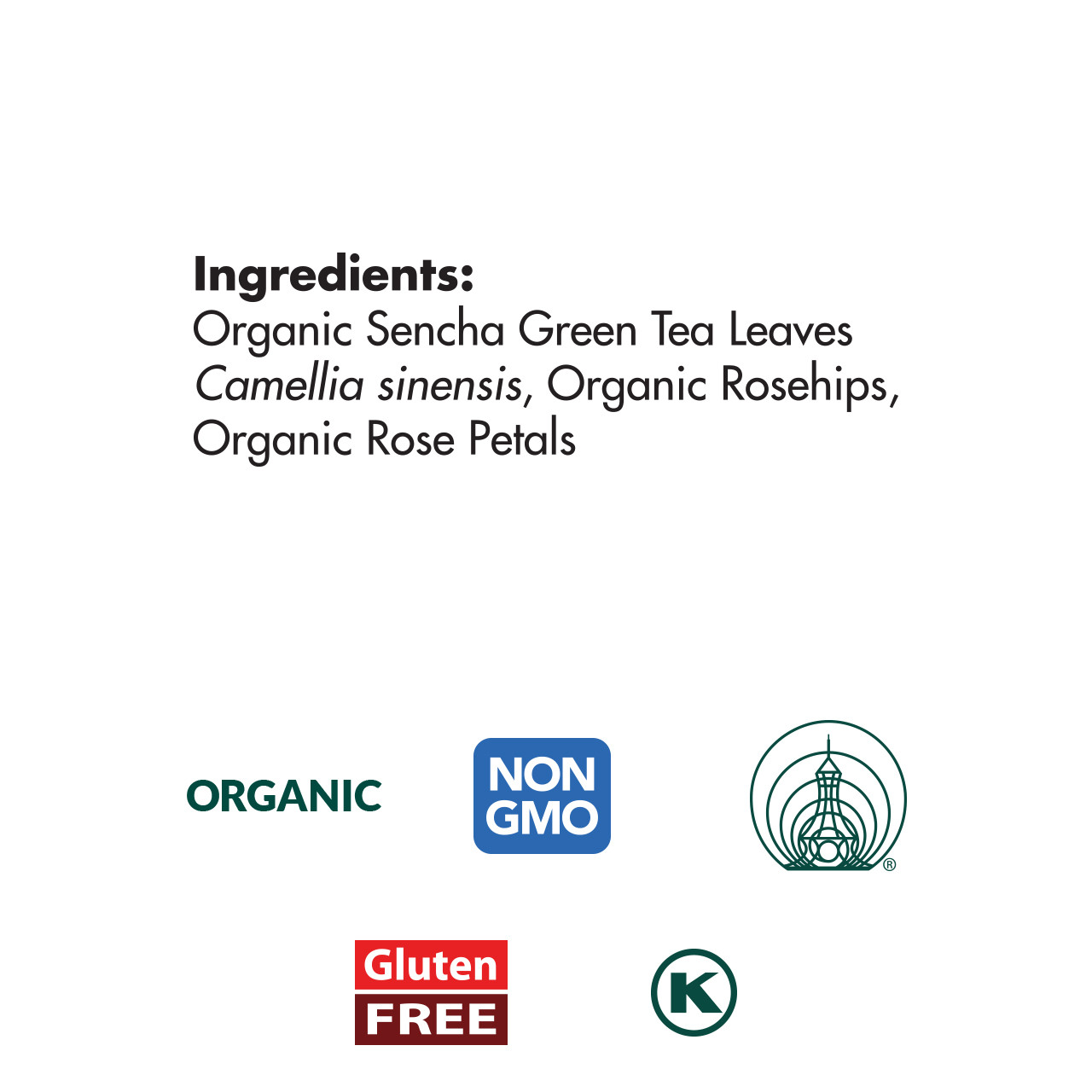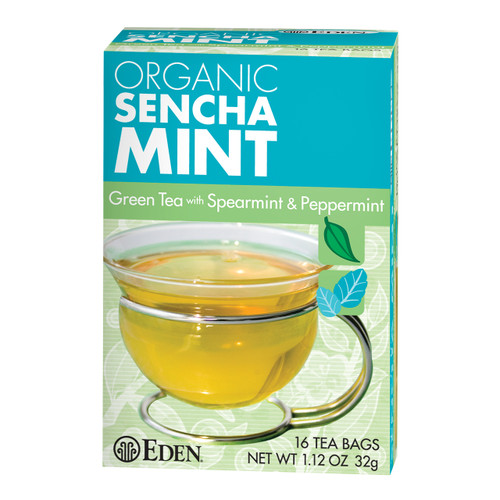Sencha Rose - green tea leaves with organic Bulgarian rose hips and Moroccan organic rose petals. Superb green tea with a sweetness of rose petal and rose hips. Refreshing, relaxing, and uplifting with rosey floral notes. Antioxidant catechin benefits. ![]()
MORE DETAILS
All true teas stem from the plant Camellia sinensis, an attractive perennial shrub about five feet tall with gentle rounded leaves and tender twigs. Tea becomes green, black, or other varieties depending upon the time of harvest, and the way it is cured and handled. Tea begins to oxidize as soon as it is picked. Chinese and English teas allow oxidation to proceed as they dry, but with Japanese green tea oxidation is skillfully halted by the steaming and rubbing process.
Herbal teas are not actually tea. There are no tea leaves. They are infusions made from many types of plants or combinations of plants simmered in boiling water. Each herb has various healthful attributes such as plant chemicals known as polyphenols and flavonoids, volatile oils, and antioxidants.
Organic Eden Sencha Rose Green Tea is a delightful combination of both true tea and herbal tea - our premium Sencha Tea and the queen of flowers, Roses. Expertly blended resulting in a delicate tasting tea with floral notes and smooth undertones of soothing green tea. The best of both loaded with antioxidant benefit from green tea's catechins and the volatile oils of roses.
Eden Sencha is organically grown on a remote, centuries old tea plantation near Uji, Japan, the Nagata Co-op. In early spring, the bushes are shaded with netting or traditional bamboo screens to protect new leaves from harsh sun. Most commonly, the first spring leaves are made into gyokuro jewel tea, Japan's rarest tea and also the one used to make ceremonial grade, powdered green tea matcha. At the Nagata Co-op these first, most prized leaves are used to make Eden Sencha green tea, also the foundation of Eden Sencha Blends.
The Nagata Co-op replenishes the soil only with vegetable quality compost. They do not use manure, chemical fertilizers, herbicides, or pesticides. While commercial tea is sprayed with chemicals 15 to 20 times per year, the Nagatas completely rejected chemical agriculture in 1974. Chemically grown plants burn out in about twenty years, but the Nagata bushes produce for 40 years or more, some for as long as 100 years.
The hand harvested organic rose hips and organic rose petals in Organic Eden Sencha Rose Green Tea come from Bulgaria and Morocco, two of the most famous rose cultivating countries in the world, where roses have been grown for centuries for use in perfume, oils, tea, and in cooking. Although there are over 10,000 different roses, there are only three whose odors are said to be highly prized. One of those is Rosa damascena used in Eden Sencha Rose Tea.
Our rose hips come from Bulgaria, the largest and number one area worldwide for the cultivation of Rosa damascena. Bulgaria is famous for its Valley of the Roses, an area approximately 80 miles long by 30 miles wide in the majestic Balkan and Sredna Gora Mountains. Here Rosa damascena grows wild. Attempts at cultivating roses in other areas of Bulgaria have apparently failed. This particular variety thrives in the area's sandy soil with exposure to bright sunlight and protection from the cold winter winds by the surrounding mountains. Over 180 villages are involved in the cultivation of roses there, with over 20,000 small farmers cultivating about 1 acre of private rose gardens. Each year in May the entire valley is transformed into a breathtaking sight of rose blossoms until the hand picking ends in early June.
Rosa damascena, a light pinkish-red rose with 36 petals to each flower, is very fragrant. Like Bulgaria, Morocco has its Valley of the Roses called the Dades Valley. Our delicate rose petals come from this famous valley located in the Atlas Mountains of Southern Morocco. This area is the third largest worldwide for the cultivation of the Rosa damascena. The Dades Valley is actually a dessert oasis irrigated by the Dades River that winds through the valley. Like in Bulgaria, Rosa damascena thrives in the valley's sandy soil and sunny environment where surrounding mountains, and olive trees planted around rose gardens, protect them from winter wind.
The flavor of tea reflects the soil it is from, the season picked, and curing process. Eden Sencha Rose Tea is tended and handled following strict organic practices. The growers are dedicated to organic farming. This dedication is also reflected in the use of skillfully executed traditional handling methods that preserve and enhance the tea's flavor, antioxidants, and volatile oils resulting in exceedingly fine organic tea.
Most tea bags contain a plastic that allows them to be heat sealed. We didn't think this was any way to treat good tea. Every part of an Eden tea bag reflects the highest care: unbleached manila fibers, a crimp seal, and pure cotton string; no whiteners or plastics, no added flavorings or dyes.
Green tea has been the focus of medical research in many countries over the past decade. The studies affirm green tea's healthful properties. Antioxidants, including epigallocatechins gallate, tannins and flavonoids, all collectively referred to as 'catechins' are cited. These polyphenols account for up to 40 percent of the tea's dry weight. Roses and rose hips have played an important part in diets for centuries and were used in making teas, salads, sandwiches, and preserves. They are highly valued for beneficial nutrients, antioxidants, and volatile oils.

















